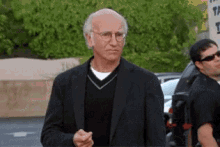Which is which?
Small one is a hemitetartemorion from Erythrai, 3mm and 0.09 grammes.
The other one is an OCTOBOL from Ptolemaic Egypt weighing 87.5 grammes and measuring 46mm.
How cool is it to have such pieces of history, any other fun facts about them or other pieces you like?
Yes, I was very surprised when I discovered that ancient coins were not out of my price range back in the day. I expected all ancient coins were museum pieces; the reality is that there are millions of them, and not all of them can be displayed in museums.
The octobol is a pretty interesting piece; supposedly Egypt had no silver mines to speak of, so in order to have coins with an equivalent value to the standard trade coin - the drachm - they had to strike large bronze coins instead.
Both denominations were pretty impractical; the hemitetartemorion was probably lost a lot, and the octobol would be too heavy for daily use…
Do you know the buying power of these? Would the big one cover a meal? A horse? A house?
It is very difficult to determine value across 2200 years, as the economy was su very different. Food was expensive compared to now, and clothes were super expensive.
A drachma - 6 obols - was a day’s wages for a skilled worker, but what that meant in purchasing power relative to now is hard to determine. This is an octobol, so eight obols, or a little over a day’s wage.
Imagine having to pay for something with a bunch of hemitetartemorions. And dropping a few.
I assume it’s the reason it was so infrequently struck, it was simply impractical. Might have been before bronze coinage became widespread, it was invented on Sicily around 450 BC but might not have made it to this town when they struck these tiny things.
Where did you get them to know they are authentic?
Both of these were bought at auctions or from coin dealers specializing in ancient coins :) The large one was bough on vcoins where you can generally trust the coins to be authentic.
The boring and somewhat useless answer to how I know they are authentic is experience - I’ve spent the better part of a decade collecting ancient coins, reading about ancient coins, and trading ancient coins…
Back when I started this community I copied a nice post from reddit on how to spot fakes.
Any reason you’re touching them with your bare hands? I’d assume with their ages you’d want to minimize additional degradation from oils
Most of these coins spent more than 2000 years in the ground, after which they were cleaned mechanically or chemically, so as long as you have reasonable clean hands they will be fine.
For top grade coins maybe you want to use gloves, but it’s not really necessary with the quality of coins I can afford.
It’s a contrast from collecting modern coins for sure, most collectors of ancient coins will break them out of slabs. Slabs are almost only used when selling ancients to modern collectors on the American market.
A slab of coins? What exactly does that look like? Not that I could afford such a thing, I just want to know what I should expect.
Coin slabs are little boxes with a coin inside them on display. They’re sold by various companies like NGC, and you can send them your coins and pay them to grade and slab them.
This is super popular for modern American coins, but not to the same degree with collectors of ancient coins. Many dedicated collectors will remove the slab/box so they can touch the coin, which horrifies collectors of modern coins as they think the plastic coffin adds value.
Ah, I see. the most “effort” I’ve put into protecting my coins are the cardboard with a hole in the middle with staples and plastic over the hole, mostly to keep the coin grip-able and in one place. I can’t stand slabbing something unless it’s been graded as uncirculated.
I store mine in trays in a coin suitcase, which works fine. I make sure the felt is acid free and so on, but they’re not inside slabs or holders. I want to be able to touch them 😂
Is the tiny one gold? What’s the large one? Why would they have such a huge coin instead of just using a smaller coin of more precious metals?
The tiny one is silver, the large one is bronze. The large one was struck in Egypt where they did not have any silver mines, so they couldn’t strike silver coins, at least not to the degree they wanted to. That’s the theory at least 🙂
Yikes! Can you imagine having to cart a bunch of those across town to pay a large bill, like buying some cattle, or a horse?
Edit: would those two coins be about equivalent in value?
Nah, the little one is with much less. A hemitetartemorion is worth 1/8th of an obol, so the octobol is worth 64 times as much as the small silver coin 🙂




